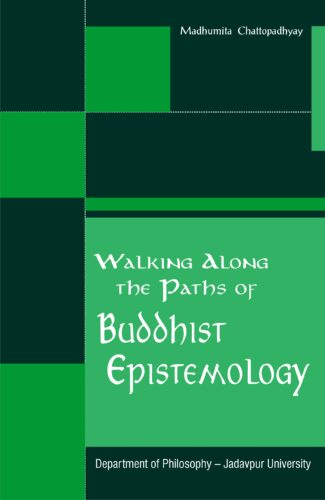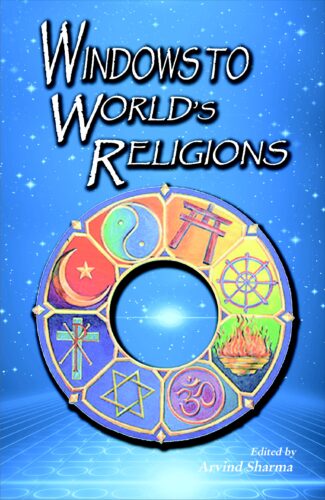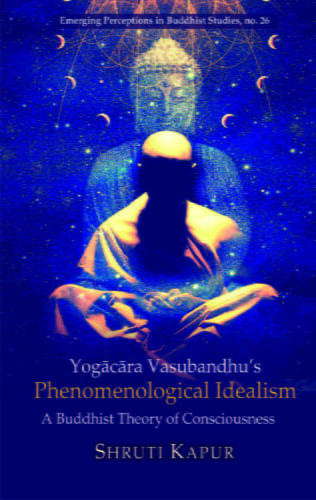Showing 61–64 of 64 results

This is a book on Buddhist epistemology dealing with different epistemological topics like the nature of knowledge, validity of knowledge, knowledge of knowledge, perception, erroneous perception, among others. The author has referred to different Sanskrit texts and literature available on these topics.
The monograph highlights the philosophical arguments offered by Buddhist thinkers on different aspects of knowledge. Various aspects of Buddhist epistemology right from the basic question of what the Buddhists mean by knowledge, the varieties of knowledge according to their belief and their explanations of the validity of knowledge are examined. A painstaking work of Prof. Madhumita Chattopadhyay, this study deals with different epistemological topics like the nature of knowledge, validity of knowledge, knowledge of knowledge, perception, erroneous perception, inference and its related issues like ascertainment of vyapti, antarvyapti, prasanganuman and fallacies of inference. The author has referred to many primary sources which include different Sanskrit texts as well as the latest secondary literature available on these topics and discusses the important role of concept of absence and the theory of apoha or negative nominalism as a substitute for universals in Buddhist metaphysics. An attempt is made to explore whether solutions to modern epistemo-logical problems as found in the Western tradition can be provided from the Buddhist perspective in order to show that Buddhist epistemology has a relevant role to play in the area of epistemology itself. The book would interest scholars and students interested in the epistemological and logical aspects of Buddhist philosophy.

A selection of papers presented at a global congress on World’s Religions after September 11, stressing the need for various religions to develop a better understanding of each other. The papers deal with Islamic, Christian, Bahai, Sikh, Primal and Hindu religious traditions and beliefs.
The volume is concerned with the role of religion in the present day. Presenting proceedings of a global Congress on Worlds Religions after September 11 held in September 2006 at Montreal, Canada, it stresses the need for interfaith friendships to develop understanding between faiths and remove stereotypes that have emerged concerning religious beliefs and their followers. Examining the thoughts of Western theologians and others on the role of religion, it discusses spirituality as being at the root of tolerance. The papers refer to Islamic, Christian Mennonite, Bahzi, Sikh and Hindu religious traditions and beliefs but bear specific reference to the North American Roman Catholic Retreat Centre at Pembroke, Ontario, Canada. They engage in examining specific topics pertaining to the different religious faiths and traditions. They examine the life of Guru Arjan Dev and his message and its significance today, the work of Mira Behn towards conserving the environment of the Himalayas, and the indigenous Australian Christian womens perception. The book provides a glimpse into the life, work and experiences of the spiritual women of Ramanashrama at Tiruvannamalai in Tamil Nadu and Ramanas views on womans right to spirituality, asceticism and salvation. It showcases the contribution of the Inter-religious Council of Central New York towards bringing people of different faiths and cultures into situations of mutual respect and trust. The volume includes the text of the Universal Declaration of Human Rights.

This book is a comparative study of the phenomenology of Yogacara Vasubandhu and that of the German philosopher Edmund Husserl having the focus on the understanding of the deeply inner nature of consciousness or mind. It asserts that the Yogacara philosophy is much richer and comprehensive than the Western phenomenology, particularly the Husserlian phenomenology.
This book is a comparative study of the phenomenology of Yogacara Vasubandhu and that of the German philosopher Edmund Husserl having the focus on the understanding of the deeply inner nature of consciousness or mind. It articulates that the Yogacara philosophy is much richer and comprehensive than the Western phenomenology, particularly the Husserlian phenomenology.
Later Vasubandhu’s philosophical orientation was idealist in Indian sense or a phenomenologist in Husserlian sense. His Mahayana Yogacara idealism is based on Asanga’s seminal text Sandhinirmocanasutra and his own Vijnaptimatratasiddhi (Vimsatika and Trimsika together) along with his exploration of the intrinsic theory of consciousness or mind. For one to have a clear-cut understanding of Vasubandhu, the book follows the Husserlian phenomenological approach as a philosophical methodology and also used select terminology wherever required.
This book is expected to be highly useful for students, researchers and teachers in the area of Indian/Buddhist philosophy.
This book is a comparative study of the phenomenology of Yogacara Vasubandhu and that of the German philosopher Edmund Husserl having the focus on the understanding of the deeply inner nature of consciousness or mind. It asserts that the Yogacara philosophy is much richer and comprehensive than the Western phenomenology, particularly the Husserlian phenomenology.

This book vividly describes how one can achieve samadhi through transforming sex. It unveils the mystery of gods and goddesses and the worshipping of Shiva-lingam. It delves on topics such as why is sex sacred, kundalini and how to raise it, and the connection between sex and spirituality. It enlightens one how to keep the flame of love ever lit in a marriage and achieve the union of heart, mind and soul. It discovers the fountain of youth, a secret guarded for centuries.
Zen Kamasutra is loaded with esoteric wisdom on how to achieve samadhi through transforming sex. It uncovers the mystery of gods and goddesses, why Hindus worship the Shiva Lingam and why is sex sacred? What is Kundalini? How and why to raise the Kundalini? It explains the much-guarded secret of the gods the connection between sex and spirituality. It enlightens one on how to keep the flame of love ever lit in a marriage and achieve a union of heart, mind and soul. It clears up questions that a spiritual seeker has on mysteries of life and death. Also discover here the fountain of youth, another secret, guarded for centuries.
The book would appeal to all those who want to grow spiritually whilst perceiving their journey to be rational and logical. Apply the recommended practices to experience the magic yourself. This book also throws light on chakras by revealing that different chakras govern different qualities like leadership, wisdom, love, communication skills, creativity and intelligence, which can be developed.
| There are no products |